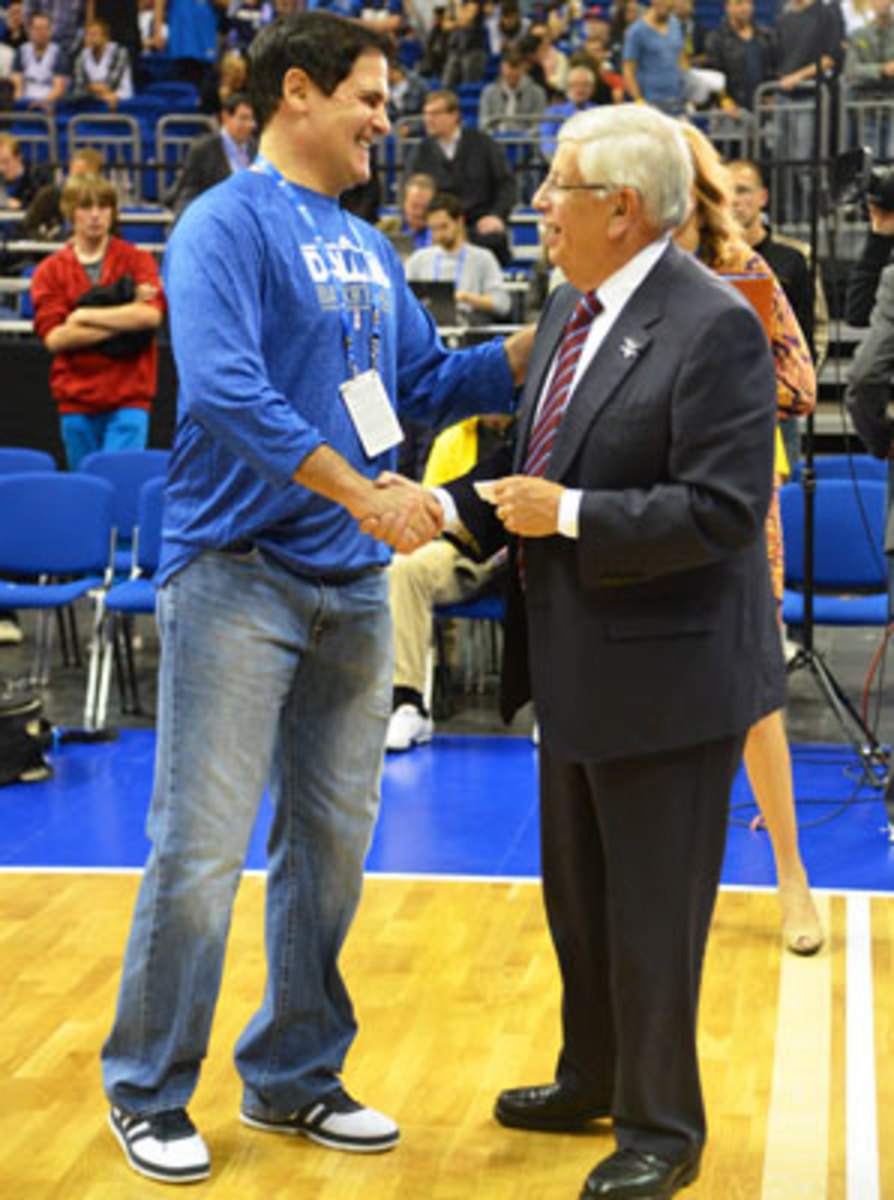Amid success and controversy, Stern's legacy will endure
If they're talking about you 100 years from now, I once mentioned to David Stern, the first thing they'll mention is that you globalized the game.
"I agree,'' he said, before quickly changing the subject.
Stern is not short on ego -- he could not have remained in charge of the NBA for so long otherwise -- and yet he does not like to speak of himself. He has insisted that he will not write an autobiography, which is a shame for all who would have read it with respect or suspicion.
The announcement Thursday of his retirement as commissioner on Feb. 1, 2014, which will be 30 years to the day since he was hired to rescue a foundering enterprise, will create 15 months of opportunity to relive his long run at the top and to examine where the NBA goes under the direction of Stern's chosen replacement, Adam Silver, the current deputy commissioner. A graph of the NBA's last three decades would show revenues and popularity climbing steeply, not unlike the increases enjoyed by the NFL and baseball.
More relevant to the impact Stern has had on basketball would be a map that reveals audiences for the NBA spreading out from the U.S. to every corner of the world. That is something neither baseball nor American football would be able to accomplish.
Most of the NBA's annual $4 billion in revenues continues to be generated domestically. But the potential for growth exists in China, in South America, Europe, the southern hemisphere and beyond. And it didn't happen all by itself.
When Stern was hired as commissioner, he had no idea that the game could grow so quickly and to such faraway distances. At that time no one was envisioning the 1989 collapse of the Berlin Wall and the razing of the Iron Curtain that would bring an end to the Cold War. Markets would be flung open to basketball and other American industries just as the international basketball federation (FIBA) was inviting NBA professionals Michael Jordan, Magic Johnson and Larry Bird to play in the 1992 Olympic Games at Barcelona.
The NBA was able to pounce on these opportunities because Stern had been interested in creating dialog with basketball leaders from other parts of the world. Instead of looking down his nose at those who viewed basketball as a political vehicle rather than a business, he made friendships that would lead to partnerships.
Stern was a lawyer who became an entertainment mogul. When he initially joined the NBA as general counsel under commissioner Larry O'Brien in 1978, there was no speculation that the league would bloom to become a worldwide industry. A more likely outcome for the NBA at that time was bankruptcy, based on the futility of the league's business plan and the public antipathy for its players.
As the NBA grew around the popularity of its most charismatic stars, Stern was criticized for cheapening the sport in order to exploit the celebrity of his most talented players. In years to come, however, it may happen that Stern will be viewed in relative terms as a traditionalist. In his outgoing decade, after all, he took a hard line with suspensions for brawling players, he instituted a dress code for players, and just this season he has even cracked down on the time players spend shaking hands and hugging before they take the court -- all of it intended to help the players sell themselves to a larger audience.
The lesson of Stern's success is that the NBA has increased revenues by focusing on the entertainment, which enabled the games to be viewed ever more universally by audiences who cared less about the sport and more about the personalities. As the NBA seeks to build on the global foundation established by Stern, and to profit from new fans that haven't grown up in the culture of American basketball, the formula for Silver will be to continue to sell the NBA as something more than a traditional sports league. He will be building on what Stern created, and based on the choices to come, Stern's modifications to the NBA model may appear quaint by comparison.
Three years ago, for example, I pressed Stern on the issue of legalized gambling on NBA games. My argument was that game-fixing remains more of a threat to the NBA so long as the games are wagered illegally through under-the-table bookmakers; legalized betting could also lead to new revenue streams and create a new audience for the NBA in much the same was as fantasy leagues and social media have created new platforms of interest.
To my surprise, Stern didn't shoot down the idea, and in so doing he distanced himself from all of the American sports commissioners who have been hired since the post was invented in 1920 for Kenesaw Mountain Landis to rescue baseball from the Black Sox scandal. "I'm going to leave the slate clean for my successor,'' Stern said in 2009. He smiled and added, "But, it's fair enough that we have moved to a point where that leap is a possibility, although that's not our current position.''
In other words, it is a world of opportunity that Stern passes onto Silver. The opportunities to come may be unexpected and controversial, which is to say that the legacy of Stern will endure long after his retirement.






